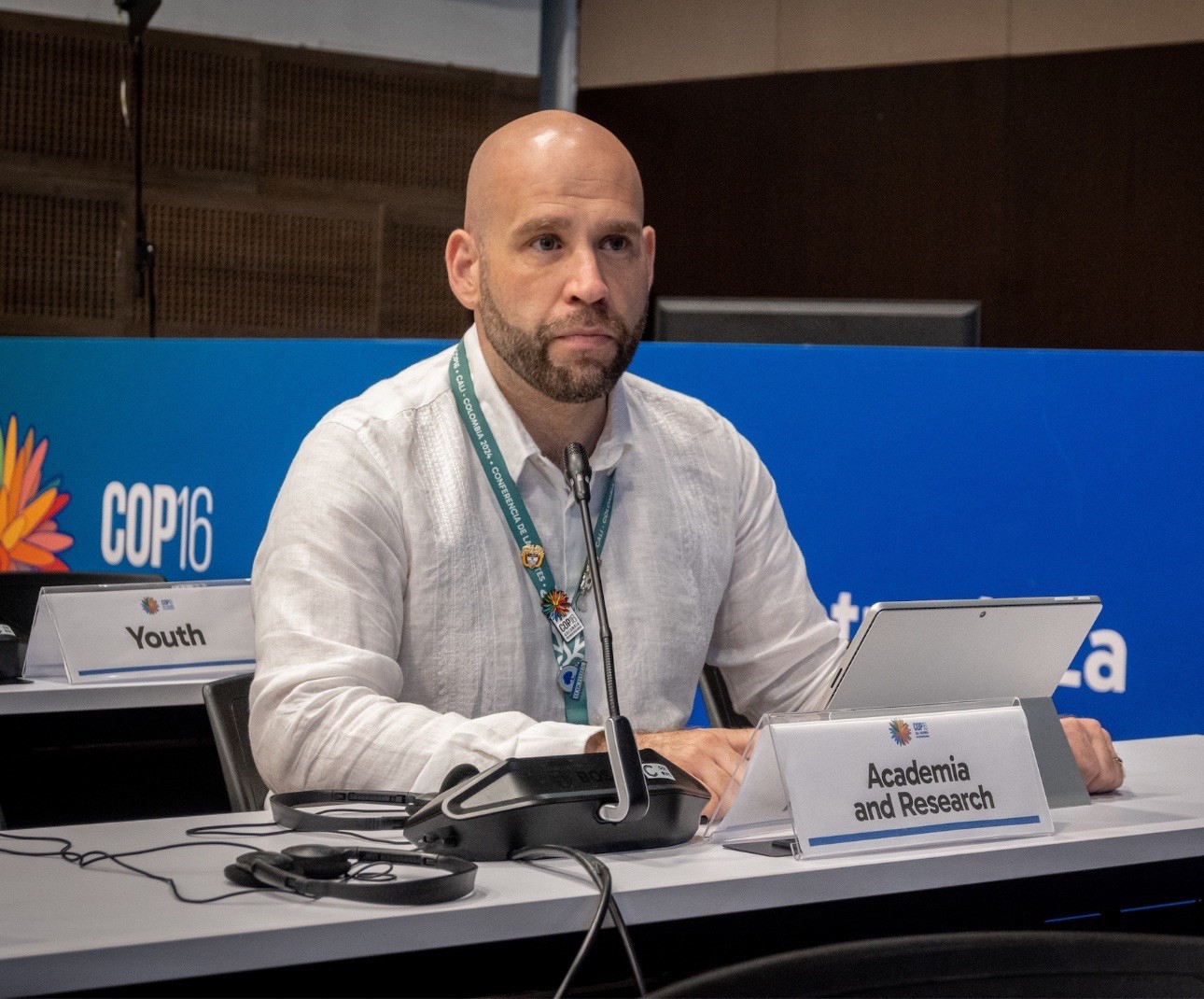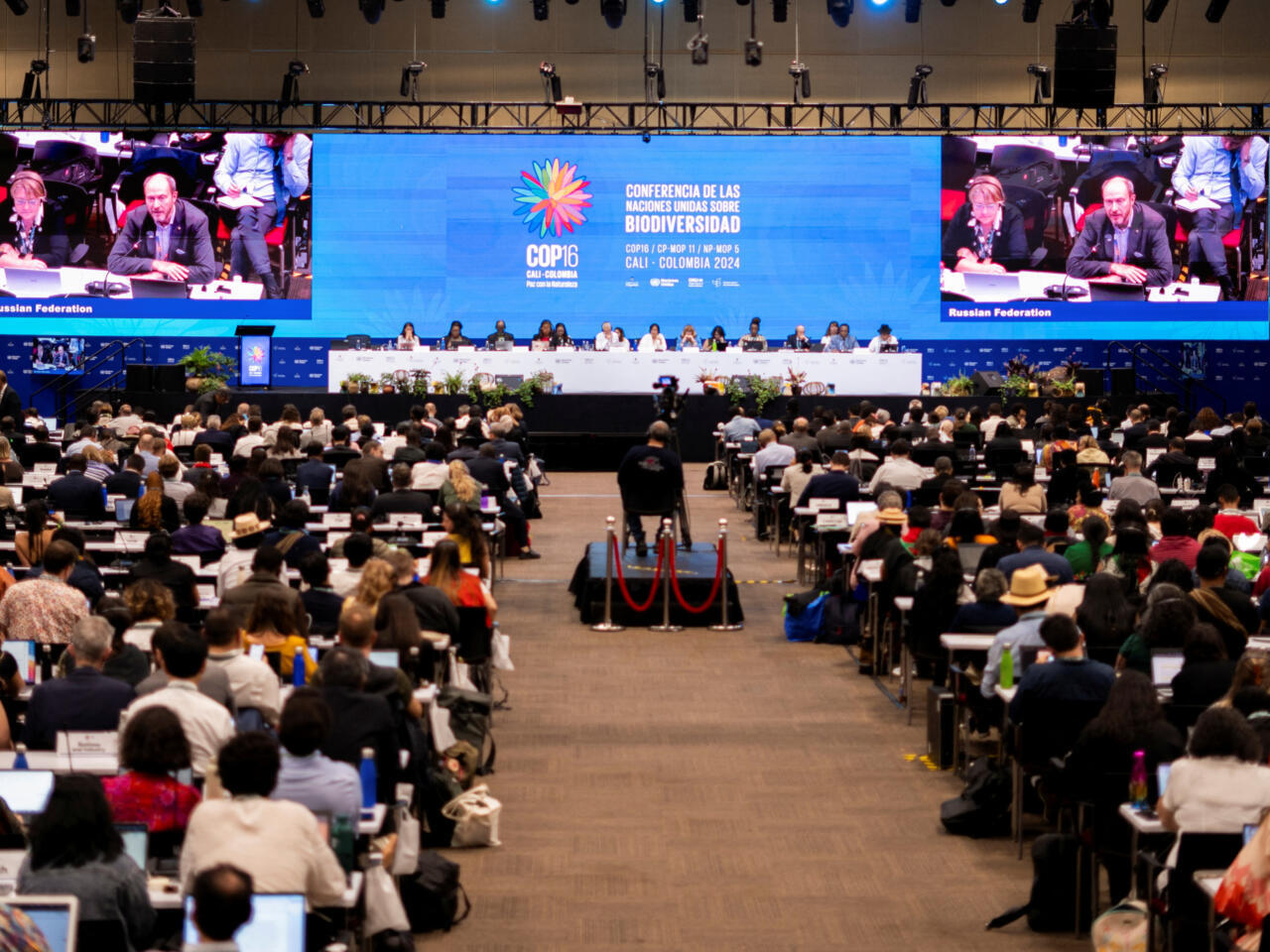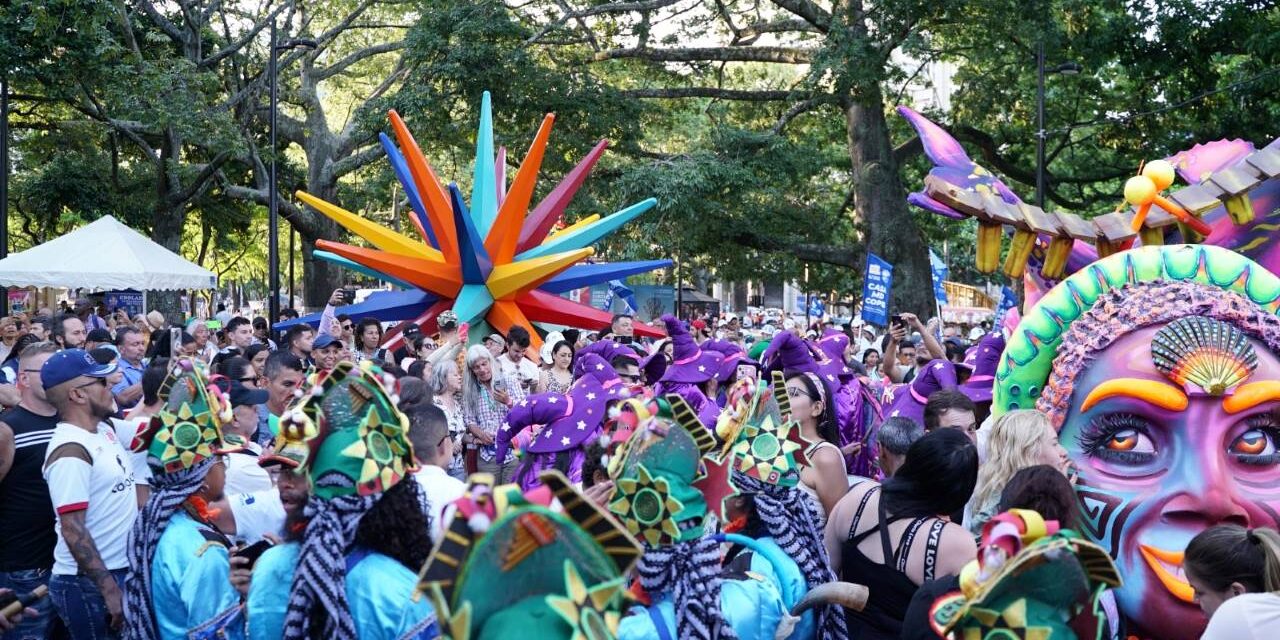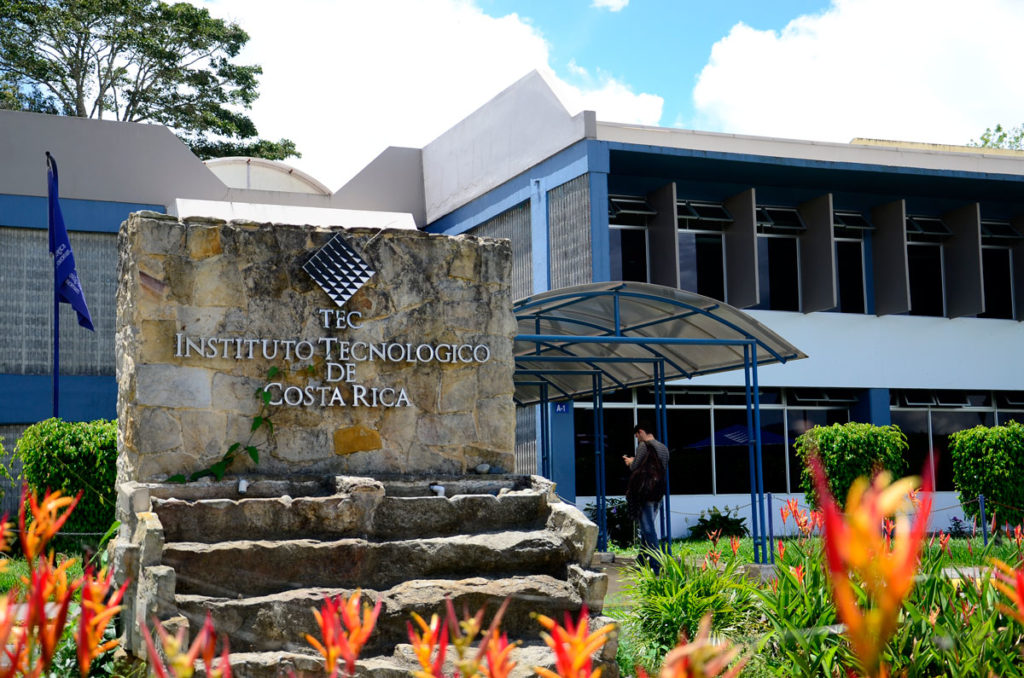Le sommet COP16 des Nations unies sur la CDB, qui s'est tenu à Cali, en Colombie, s'est achevé sur une note douce-amère, laissant le monde avec quelques nouvelles réalisations très appréciées, tout en mettant en lumière de nombreux défis croissants et non résolus.
La présidence colombienne, ainsi que d'autres parties ambitieuses, ont déployé des efforts considérables pour souligner le besoin urgent d'augmenter le financement de la planification et de la conservation de la biodiversité, en particulier dans les pays du Sud. Le Nord global doit canaliser les financements publics et privés des dommages et des compensations vers des solutions positives nettes, qui sont les seules qui nous permettront d'atteindre les objectifs du cadre mondial pour la biodiversité Kunming-Montréal (KMGBF).
La création du "Fonds de Cali", un mécanisme de partage des bénéfices pour les informations numériques sur les séquences (DSI), a constitué une étape positive importante. Ce fonds vise à garantir que les bénéfices des entreprises tirés des ressources génétiques (comme celles de l'industrie pharmaceutique, entre autres) soient partagés avec les régions d'origine, dans un souci de justice et de soutien aux efforts de conservation sur le terrain, en reconnaissant les gardiens de la nature. Volontaire pour l'instant, le fonds peut être considéré comme un petit pas dans la bonne direction.
La création d'un organe subsidiaire sur la participation pleine et effective des peuples autochtones et des communautés locales dans le cadre de la Convention des Nations unies sur la diversité biologique (CDB) a constitué une autre étape importante. Cet organe offrira aux communautés autochtones une plateforme de négociation officielle leur permettant d'influencer les discussions, reconnaissant ainsi leur rôle essentiel en tant que gardiens de la nature et leur position en première ligne face aux crises climatiques, naturelles et sociales interdépendantes. Il s'agit là d'une belle réalisation de la "COP des peuples" et d'un petit pas vers la justice historique.
Néanmoins, je pense que la COP16 a montré au monde entier le nombre de questions non résolues que nous devons encore traiter. Seuls 40 pays sur 196 ont présenté leur plan national pour la biodiversité dans les délais impartis, et le financement de la biodiversité reste terriblement insuffisant. Tout comme les "remakes" de films classiques font fureur à Hollywood, répondant à un marché axé sur la nostalgie, à la CDB nous semblons assister à une sorte de remake de l'accord de Paris de la CCNUCC : La mise en œuvre de la CDB dépend des progrès réalisés en matière de financement, qui sont bloqués. L'énorme éléphant dans la pièce entrave les négociations sur d'autres questions clés, et la fracture Nord-Sud est toujours douloureusement évidente. Les parties ont traîné les pieds sur la proposition d'un fonds $200B pour la nature, la reportant à la fin de la COP. Dans les dernières heures, tant de délégués des Parties sont partis que le quorum de la conférence a été perdu et a dû être ajourné : reporté à une COP intérimaire extraordinaire en 2025.
En dehors des plénières, mais à l'intérieur de la zone bleue, on a constaté une très forte présence de délégations d'entreprises, de nombreux forums et discussions axés sur le marché, et une grande importance accordée aux "crédits", aux "ressources" et aux "évaluations". Cette présence semble disproportionnée par rapport à la présence d'acteurs et au nombre de discussions des secteurs de la société civile, des autochtones, de l'enseignement et de la recherche. Le secteur privé semble également se concentrer beaucoup trop sur le "E" et la "richesse des opportunités offertes par la nature" - quelqu'un a-t-il déjà réfléchi en entendant "l'Amazonie est ouverte aux affaires" ? - alors que le "S" et le "G" sont encore négligés et sous-estimés. EcoCitizen a tenu à rappeler à son public et à ses homologues, tout au long de cette COP, que les indicateurs "S" - sociaux - sont loin d'être des futilités.
Alors que dans les pays du Nord, l'accent peut être mis sur l'écart de rémunération entre les hommes et les femmes et les congés de maladie, les indicateurs des pays du Sud sont radicalement différents. Dans ces régions, les indicateurs sociaux sont une question de vie ou de mort. Ce manque d'attention de la part des acteurs privés du Nord reflète une déconnexion troublante et devrait servir de signal d'alarme pour les régulateurs des États-Unis et de l'Union européenne. Les entreprises doivent reconnaître que leurs chaînes d'approvisionnement impliquent des vies humaines réelles, souvent dans des conditions difficiles. Des questions telles que le travail des enfants, le travail forcé et les environnements de travail dangereux sont courantes, mais elles ne reçoivent pas suffisamment d'attention par rapport aux préoccupations environnementales, qui elles-mêmes sont loin d'être aussi importantes qu'elles devraient l'être dans les conseils d'administration.
Il ne peut y avoir de solution aux crises du climat et de la nature sans une approche intégrale des droits de l'homme et la garantie de pratiques éthiques dans les opérations. Nous avons entendu des dirigeants autochtones et des défenseurs de la justice environnementale souligner la violence et les déplacements causés par les activités légales et illégales, en particulier, mais pas seulement, dans les industries extractives. La COP16 est un pas en avant, mais elle est loin de ce qui est nécessaire pour que les sociétés humaines puissent prospérer aux côtés de la nature. La décision de promouvoir les synergies entre la biodiversité et les politiques climatiques est positive, mais nous avons besoin de plus de proximité et d'harmonie entre les trois conventions de Rio 1992 (CCNUCC, UNCBD, UNCCD), ainsi qu'avec d'autres traités mondiaux pertinents tels que le Traité des Nations Unies sur les plastiques qui, espérons-le, nous permettra de terminer cette année sur une note positive.
Chaque année, on estime que 10 000 espèces disparaissent encore, ce qui affaiblit les écosystèmes et les systèmes humains qui en dépendent, débilitant ainsi notre résilience au changement climatique. Les effets néfastes de ces crises naturelles interdépendantes sur les sociétés humaines sont déjà évidents : phénomènes météorologiques extrêmes, effondrement des récoltes, migrations massives, conflits pour les terres fertiles et l'eau, inégalités économiques croissantes et graves, et même tensions sur les systèmes démocratiques dans le monde entier.
En dehors de la zone bleue, la Colombie et Cali ont organisé une zone verte historique, engageante pour l'ensemble de la société et suscitant un intérêt national pour la CdP et les discussions sur la biodiversité en général. La barre a été placée très haut et les futurs pays hôtes auront fort à faire pour atteindre ce niveau. La zone verte et la société colombienne dans son ensemble ont véritablement saisi l'esprit du moment et ont saisi toutes les occasions de s'impliquer dans les activités publiques, les discussions et les projecteurs des médias pour faire pression sur les délégués. Le dynamisme, le pluralisme, l'inclusivité et l'optimisme général qui régnaient à Cali et au-delà étaient vraiment palpables et méritent d'être salués.
La COP30 en 2025 sera une étape importante qui pourrait nous permettre d'avancer de manière significative vers des solutions globales et intégrales. Mais n'oublions pas qu'il ne s'agit pas seulement de conférences des Nations unies et de bonne volonté. Il s'agit de problèmes quotidiens graves, d'opportunités quotidiennes et d'actions que nous devons tous entreprendre chaque jour.
Soit nous unissons nos forces pour relever ces défis urgents et faire en sorte que nous vivions tous dans les limites de notre planète, soit nous sommes destinés à périr ensemble.
Salvatore Coppola-Finegan
Président
EcoCitoyen
Cali, Colombie
2 novembre 2024




